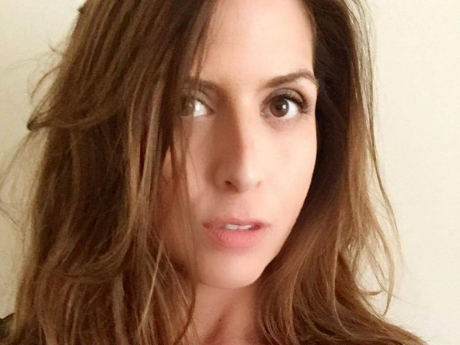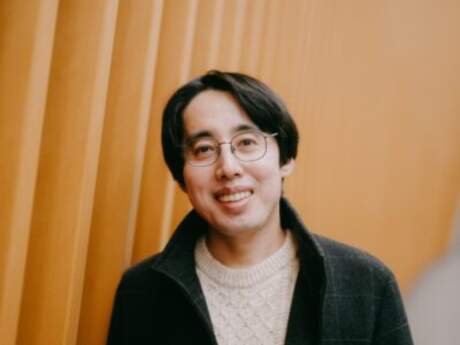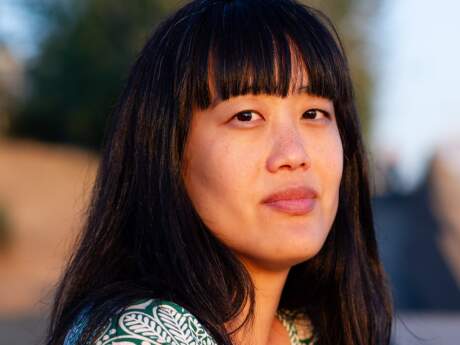In Their Own Words
Jenny Sadre-Orafai's “We Can Be Anything We Couldn’t Be”

We Can Be Anything We Couldn't Be
Here is the sunset every painter has painted
once—the one right before movie credits.
Here is the largest love you'll ever feel
before you die. We can say it's a wave
and it comes in and takes us back out
to dying and death and endings and violins
and pianos flung in the middle of the ocean
on purpose by teenagers. We can say we played
songs in our sleep on that piano, sand fanning
around our toes, and there was no resistance
in the ocean, in our deaths. We can be anything
we couldn't be before. We're the percussion
section. We can never die since we are already
dead, since everyone knows we're prized ghosts.
From Paper, Cotton, Leather (Press 53, 2014). Reprinted with the permission of the author.
On "We Can Be Anything We Couldn't Be"
I didn't think prank at first. I didn't really think anything beyond the image—a baby grand piano resting on a sandbar in Biscayne Bay. Sixteen-year-old Nicholas Harrington said it wasn't a prank. He said it was "more of a movement." I thought then, on January 25, 2011, youth. I thought of being fearless and reckless and so full of ideas. I found myself thinking about the abandoned piano while teaching The Odyssey. I made a cheese sandwich and there was the bay all around it. I wanted so badly for someone to go out and bang on its charred keys, to make something louder and bigger than an ocean. When I realized I had to stop carrying the piano around with me, I wrote "We Can Be Anything We Couldn't Be." I wrote it in one sitting. I pretended I was playing that baby grand.
In many ways Harrington's movement made me face a lot of my anxieties about getting older and eventually dying. I think I might have been angry about how and when death is shown in movies (at the end and with generic sunsets). The poem was a submission. It was my way of trying hard to let go of being so afraid. Maybe I thought that Harrington was being brave or maybe I'm remembering it wrong or even giving him too much credit. The poem is also a way of consoling myself I think—whatever I don't become in this life because of all of my anxieties, I will be that as a ghost. I will be the loudest ghost. I will be a parade.
It's the last poem in the book because I think it's honest and hopeful. It was really important to me that the collection both begin and end with some hope. And, there's something about the piano in that bay that makes me happy that we will always do things that we think are spectacular and stupid and jarring and so alive.


